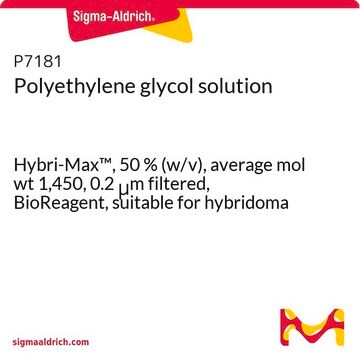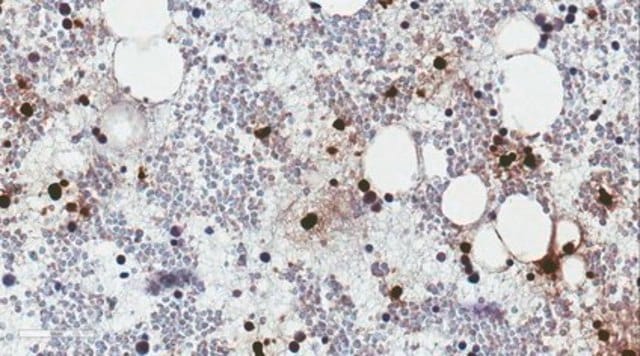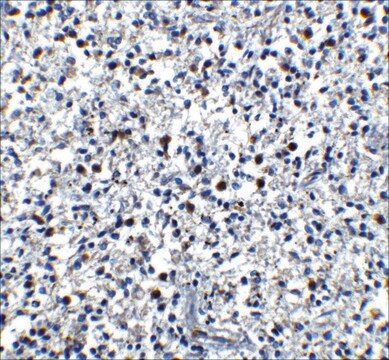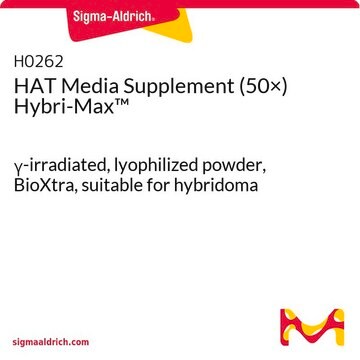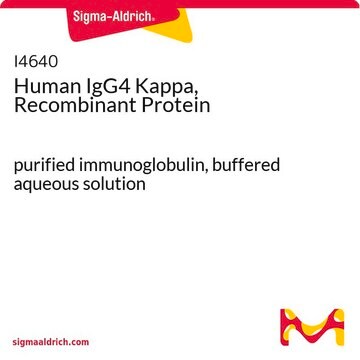MABN696
Anti-G6PD Antibody, clone 2H7
ascites fluid, clone 2H7, from mouse
Synonim(y):
Glucose-6-phosphate dehydrogenase, G6PD
About This Item
Polecane produkty
pochodzenie biologiczne
mouse
Poziom jakości
forma przeciwciała
ascites fluid
rodzaj przeciwciała
primary antibodies
klon
2H7, monoclonal
reaktywność gatunkowa
human
metody
flow cytometry: suitable
immunohistochemistry: suitable
western blot: suitable
izotyp
IgG1
numer dostępu UniProt
Warunki transportu
wet ice
docelowa modyfikacja potranslacyjna
unmodified
informacje o genach
human ... G6PD(2539)
Opis ogólny
Immunogen
Zastosowanie
ELISA (Direct) Analysis: A 1:10,000 dilution from a representative lot detected G6PD with recombinant G6PD protein antigen.
Flow Cytometry Analysis: A 1:200-400 dilution from a representative lot detected G6PD in non serum starved Jurkat cells.
Optimal working dilutions must be determined by end user.
Neuroscience
Developmental Neuroscience
Jakość
Western Blotting Analysis: A 1:500-2,000 dilution of this antibody detected G6PD in HeLa, MCF-7, Jurkat and K562 cell lysates.
Opis wartości docelowych
Powiązanie
Postać fizyczna
Przechowywanie i stabilność
Handling Recommendations: Upon receipt and prior to removing the cap, centrifuge the vial and gently mix the solution. Aliquot into microcentrifuge tubes and store at -20°C. Avoid repeated freeze/thaw cycles, which may damage IgG and affect product performance.
Komentarz do analizy
HeLa, MCF-7, Jurkat and K562 cell lysates
Oświadczenie o zrzeczeniu się odpowiedzialności
Not finding the right product?
Try our Narzędzie selektora produktów.
Kod klasy składowania
12 - Non Combustible Liquids
Klasa zagrożenia wodnego (WGK)
nwg
Temperatura zapłonu (°F)
Not applicable
Temperatura zapłonu (°C)
Not applicable
Certyfikaty analizy (CoA)
Poszukaj Certyfikaty analizy (CoA), wpisując numer partii/serii produktów. Numery serii i partii można znaleźć na etykiecie produktu po słowach „seria” lub „partia”.
Masz już ten produkt?
Dokumenty związane z niedawno zakupionymi produktami zostały zamieszczone w Bibliotece dokumentów.
Nasz zespół naukowców ma doświadczenie we wszystkich obszarach badań, w tym w naukach przyrodniczych, materiałoznawstwie, syntezie chemicznej, chromatografii, analityce i wielu innych dziedzinach.
Skontaktuj się z zespołem ds. pomocy technicznej
